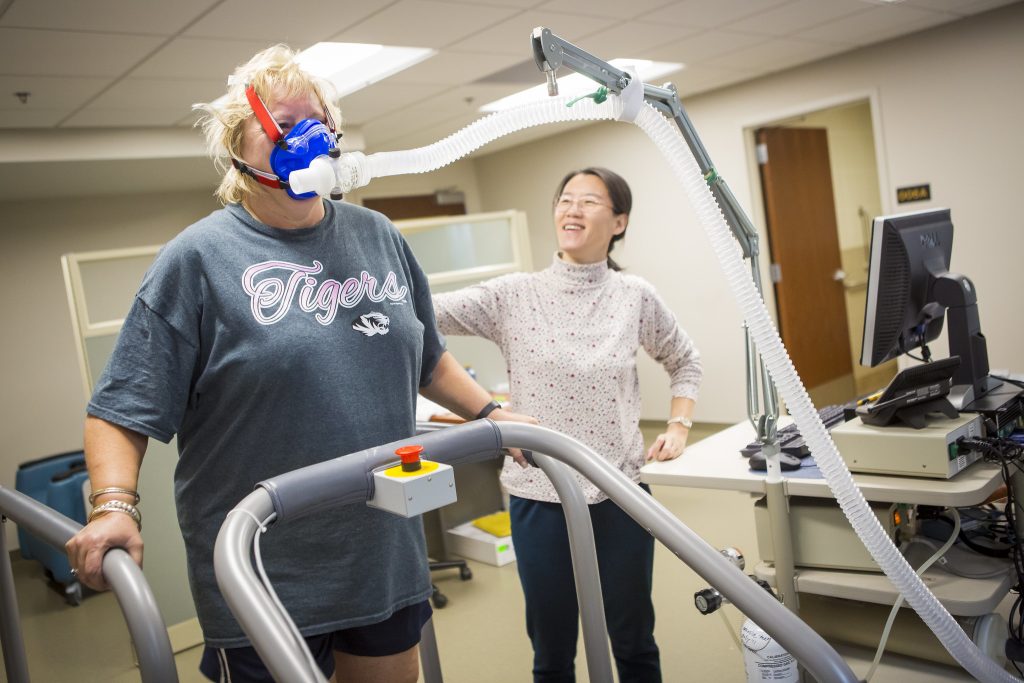
The Nutrition and Exercise Physiology graduate program provides world class training that can open the door to a wide variety of career opportunities in the life sciences. We offer outstanding education and experience that will help you achieve your career goals. Our graduate program is part of a campus-wide network of research programs that provides integrative research in the biomedical sciences. Both programs provide outstanding educational and cutting edge research opportunities for our students in the areas of nutrition, physical activity, exercise, and its relationship to human health and disease.
2022 NEP Graduate Handbook (PDF)
M.S.
Learn about the full curriculum
Apply today
Emphasis area: Exercise Physiology
Emphasis area: Nutritional Sciences
Ph.D.
Learn about the full curriculum
Apply today
Emphasis area: Exercise Physiology
Emphasis area: Nutritional Sciences
Costs and aid
Contact the director of graduate studies for current information on hourly paid positions, and graduate teaching and research assistantships.